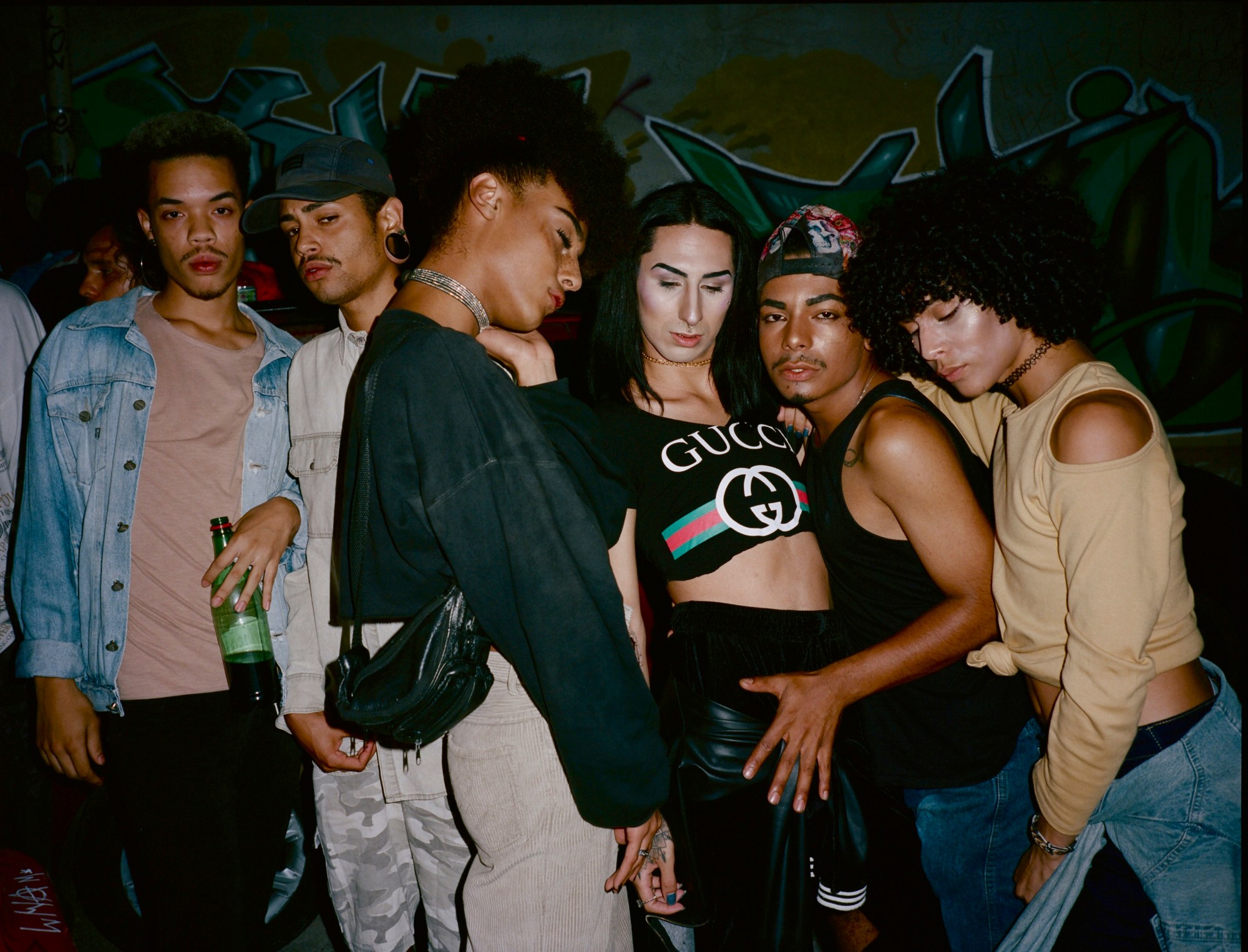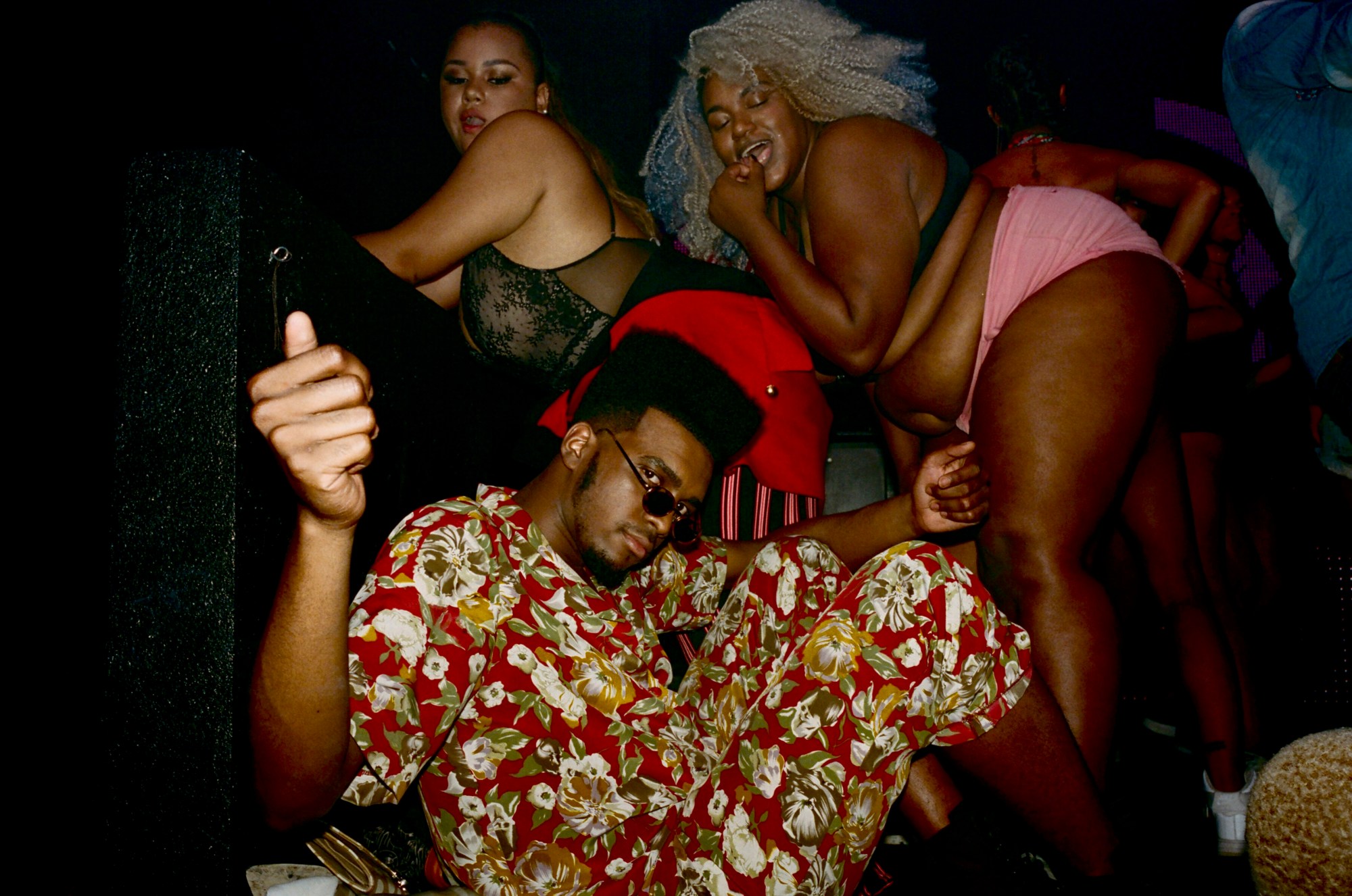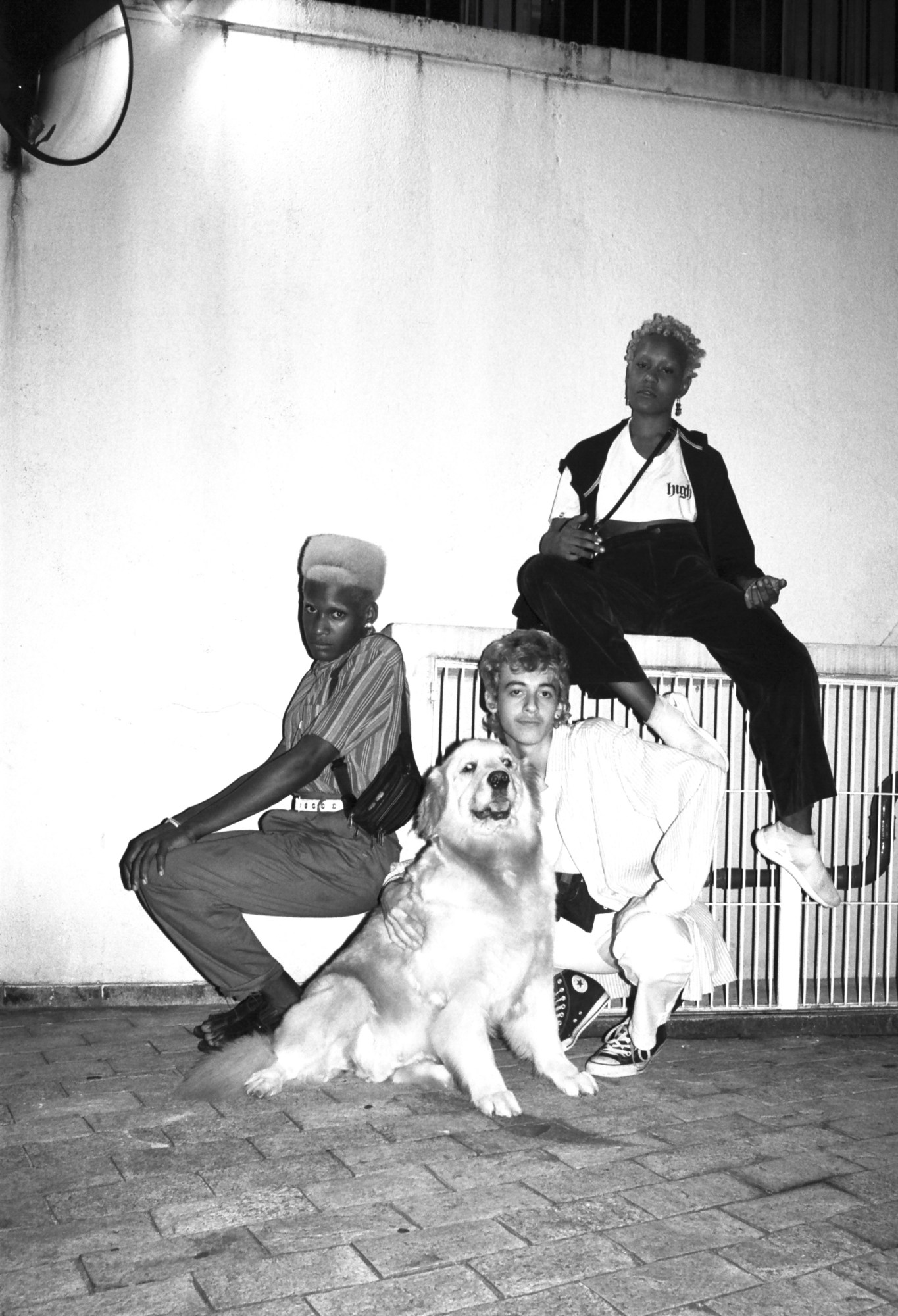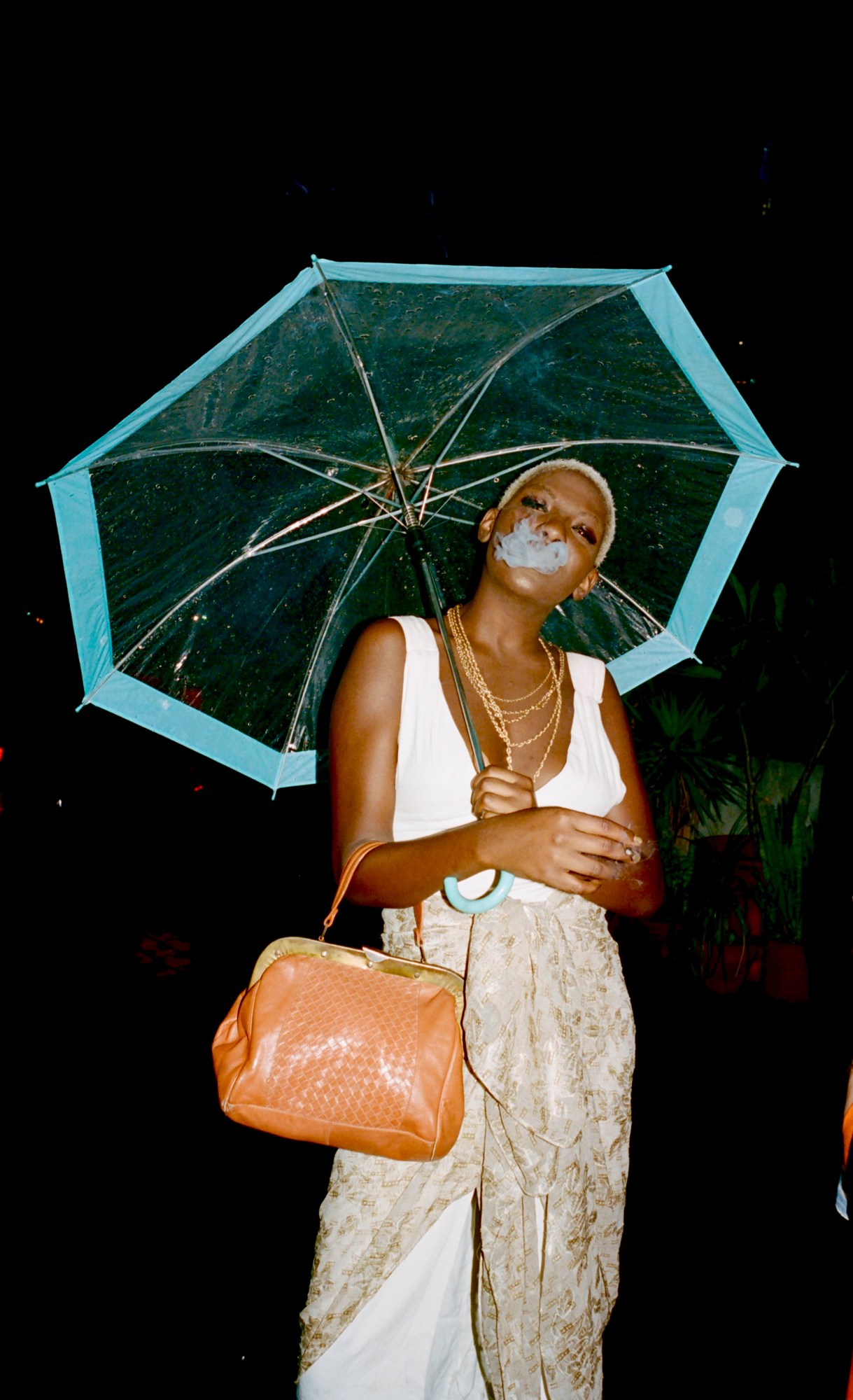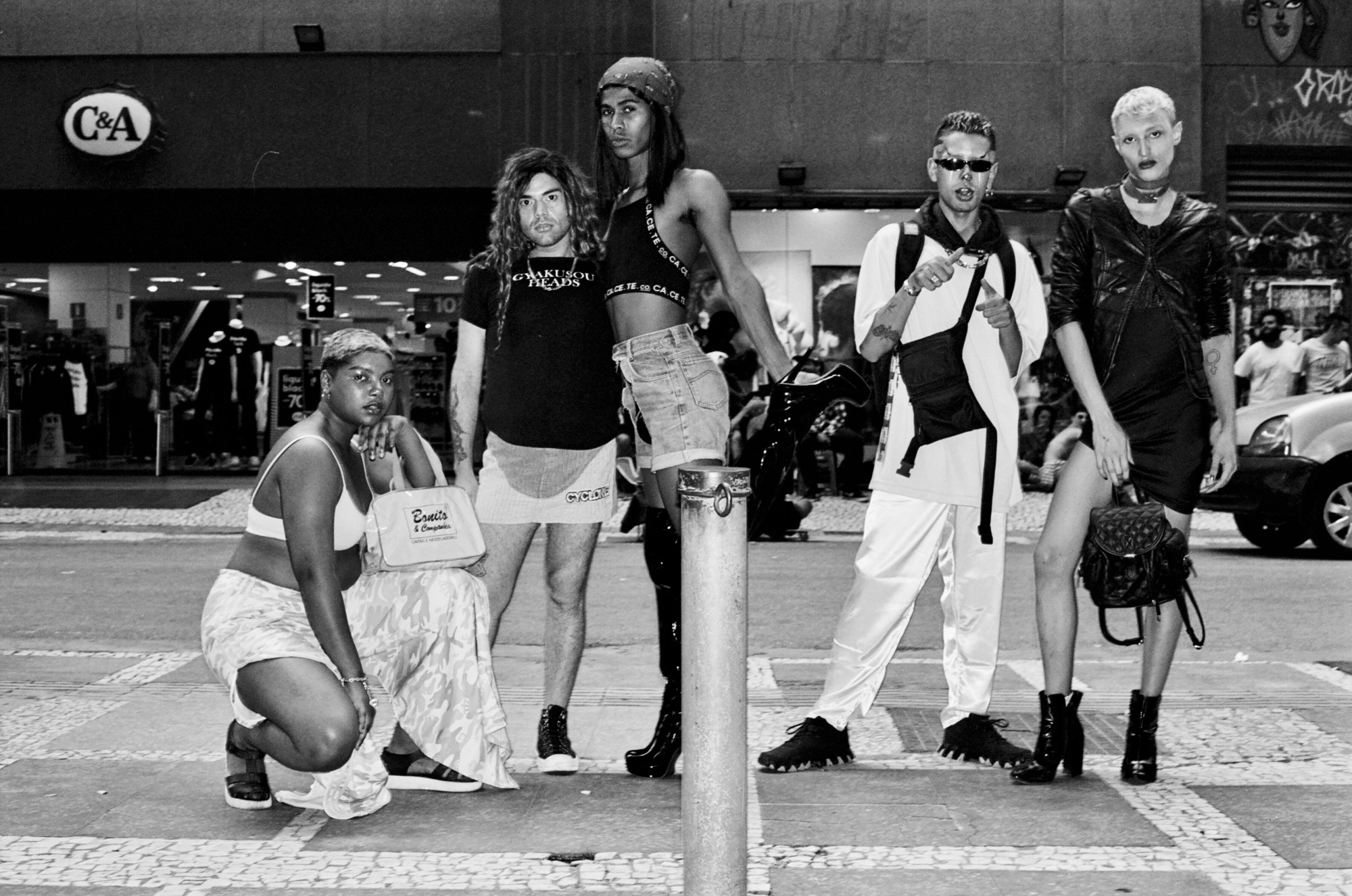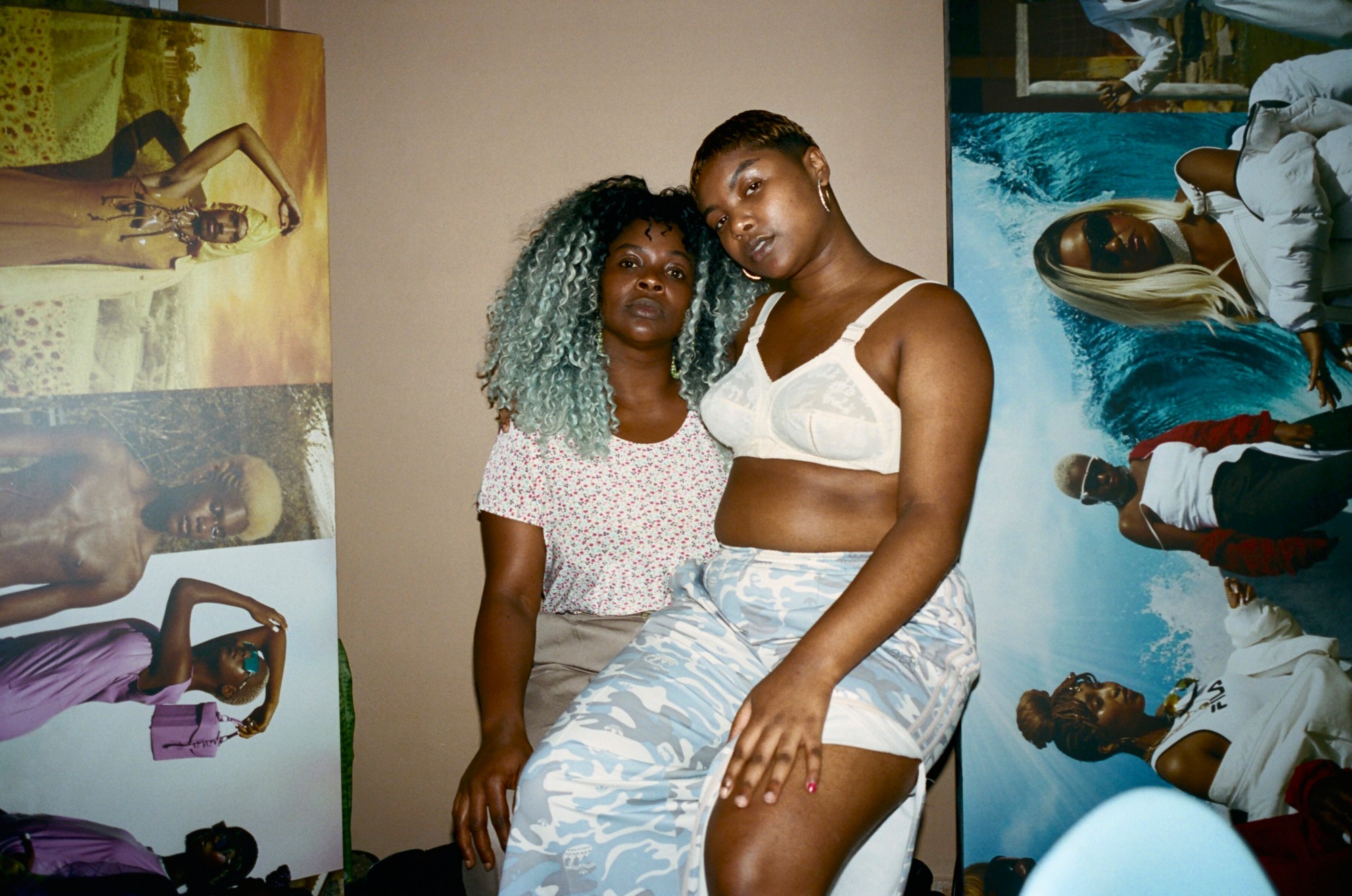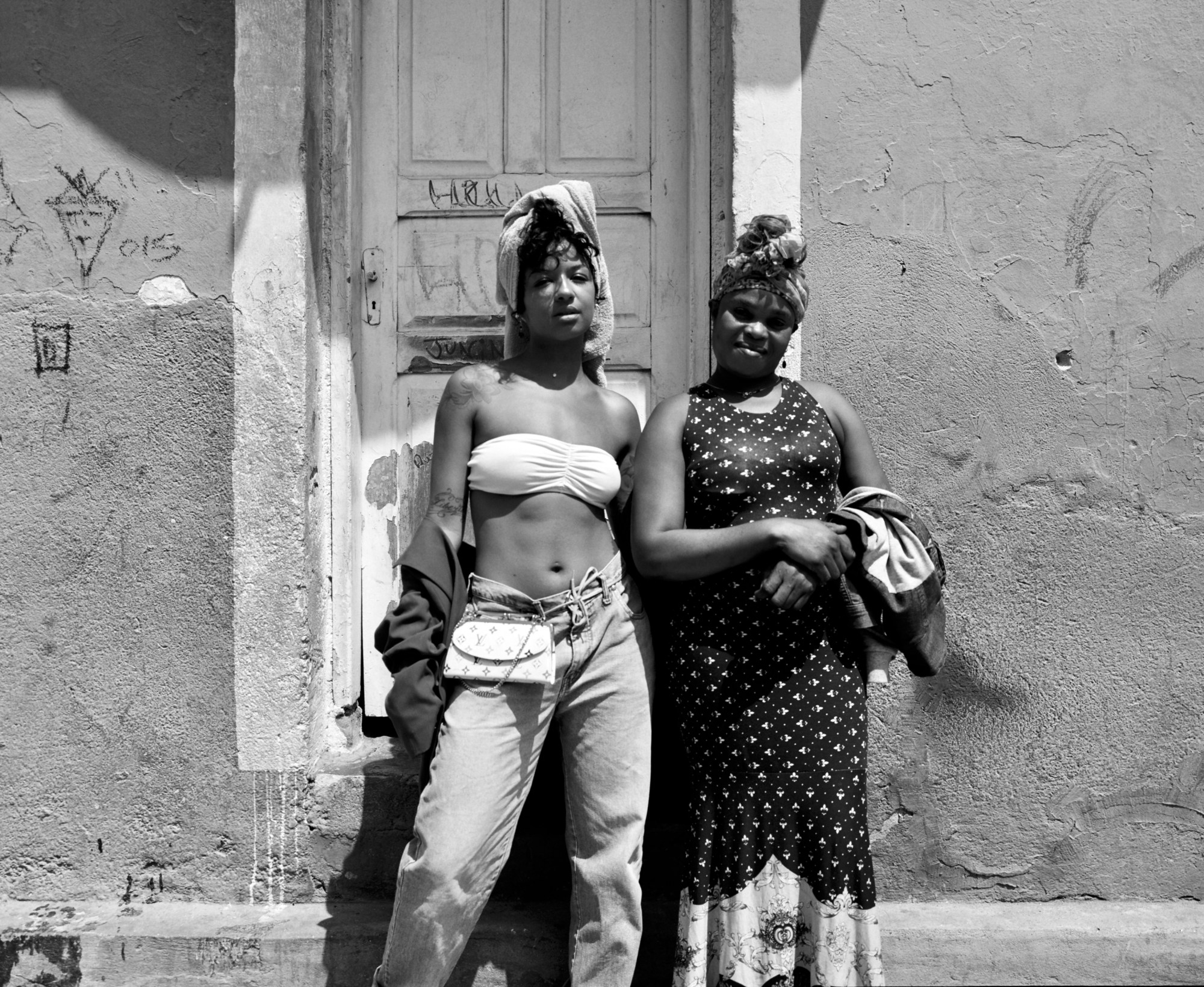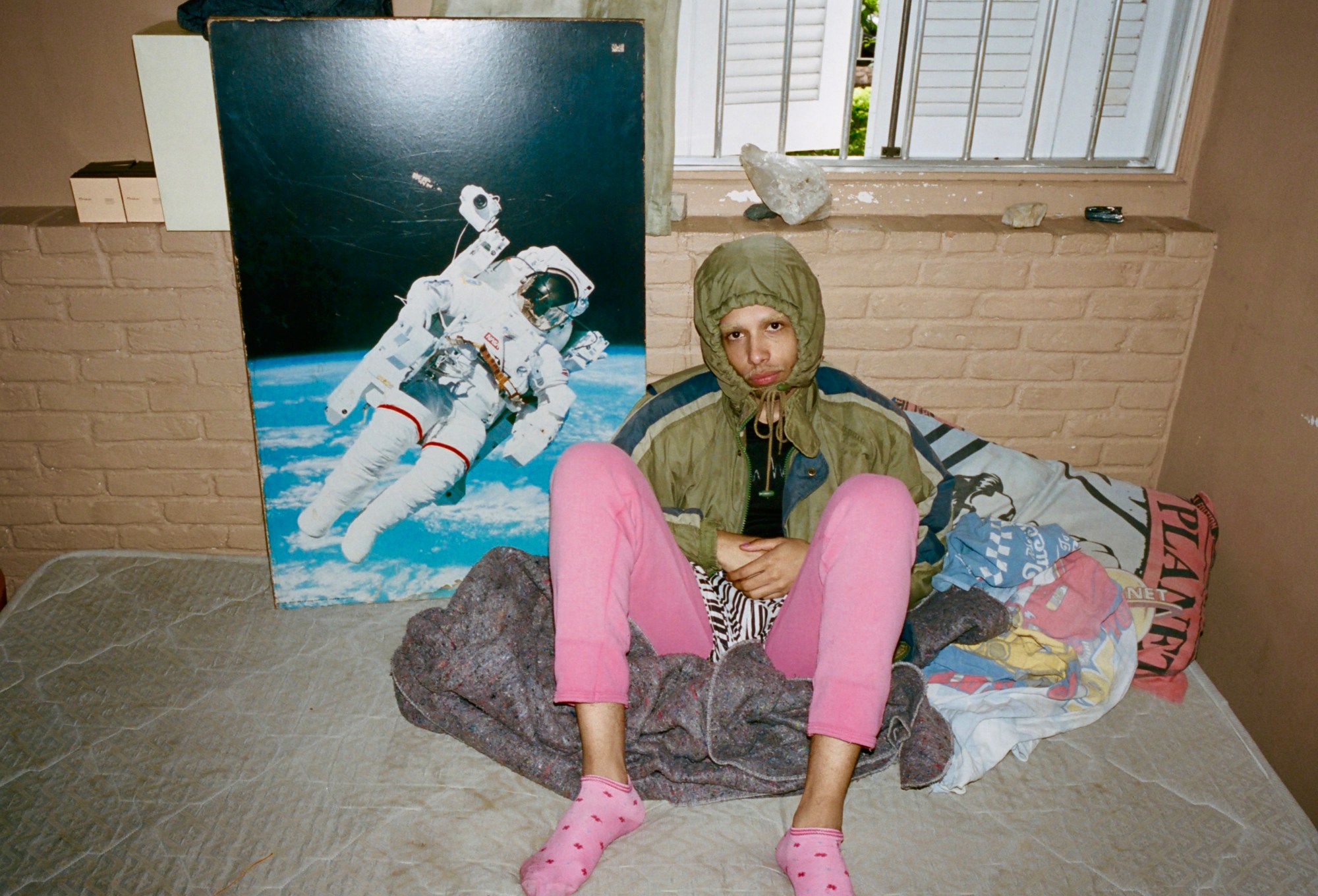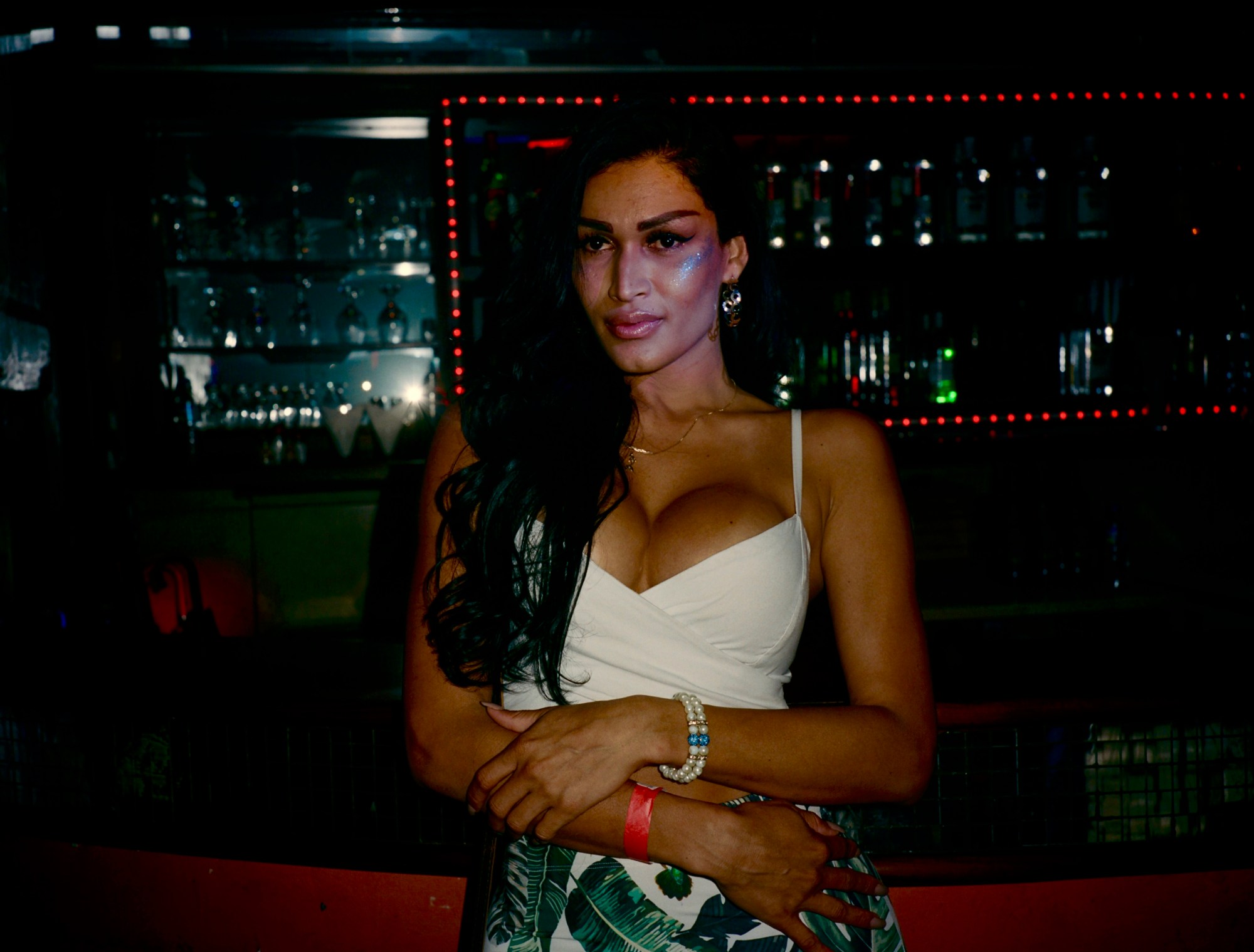Brazil, a country much applauded by the world for its progress over the last five years, from hosting the Olympic Games to winning the World Cup, is now experiencing a major social crisis. This comes after a coup d’état, in which the first female president in the history of Brazil was dismissed from her position in a maneuver by her vice president, Michel Temer — the politician with the lowest popularity index in the history of our country.
In March 2018, Congresswoman Marielle Franco, a black lesbian from the favela and one of the icons of Brazil’s black movement, was brutally executed in the city of Rio de Janeiro. It’s one of the most horrific unresolved public crimes of our time. Since then, violence has begun to take over the streets, where daily racism, homophobia, and transphobia is manifested through brutal attacks on dissenting bodies. 22-year-old non-binary-trans visual artist Matheusa Passarelli was executed in Rio de Janeiro just months after the assassination of Franco.
Currently, Brazil is going through the second round of its presidential elections. The race to the finish has come down to two very different candidates. Fernando Haddad, leader of the Worker’s Party, is competing with Jair Bolsonaro, a far right military candidate with huge public support, who publicly honors the dictatorial politics of the 60s. He condemns minorities through racist, homophobic, classist, and sexist statements like, “I’m not going to rape you, because you don’t deserve it,” which he said in a conversation with a female deputy. Bolsonaro is at the front of the populist wave spreading throughout Latin America and the world. He is often compared to Trump, and even Adolf Hitler, and epitomizes fascism and terror in the tropics.
The future of the country will be decided at the elections on October 28. Here, i-D talks to a few young Brazilians who understand resistance as existence, and are trying for a much more promising future, based on the principles of love and community.
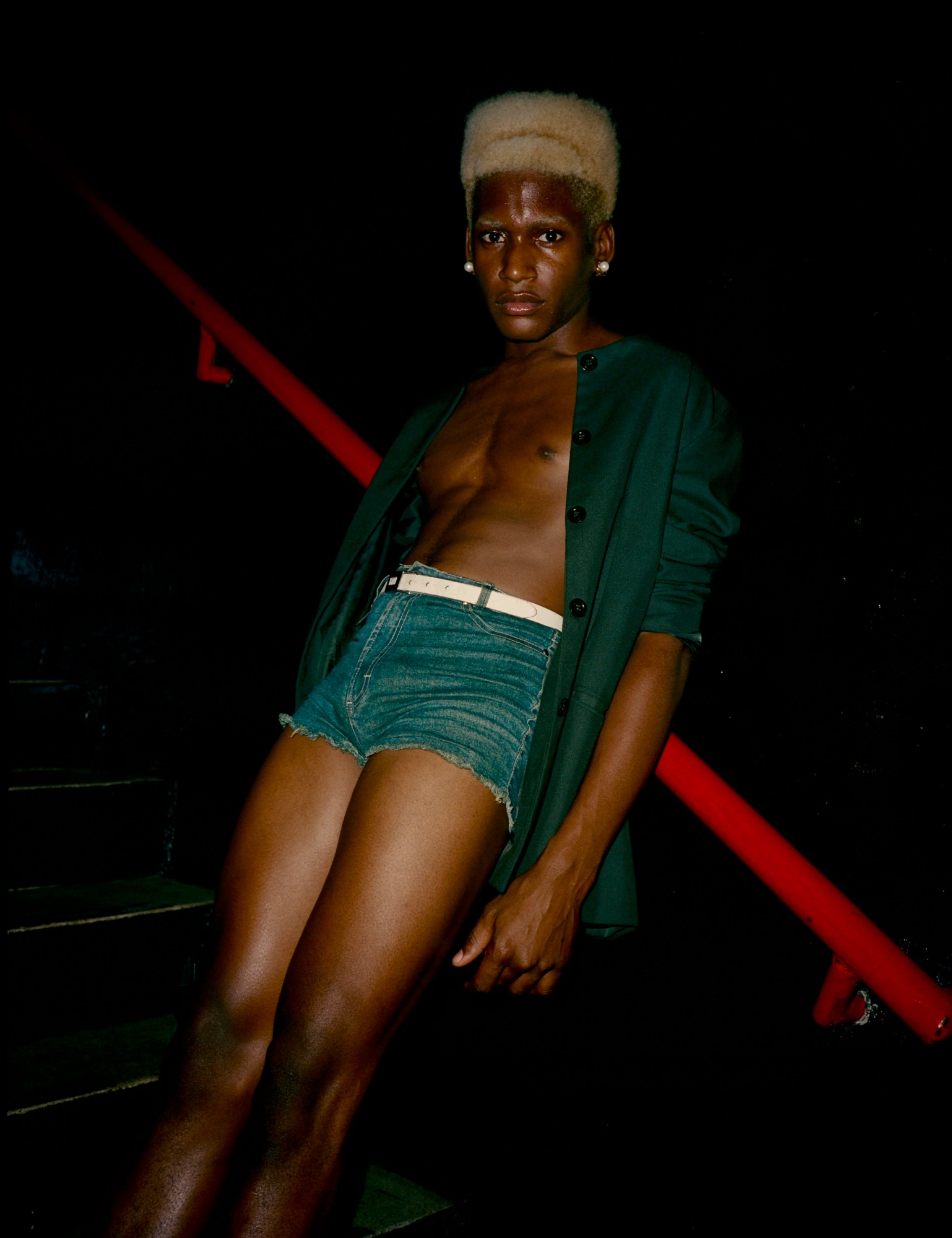
Weslley Baiano, 18 years old, model, dancer, and performer.
What is your experience of being LGBTQ and black in Brazil?
Beloved and hated. Visible but invisible.
Tell us what you love about the creative community you’re part of.
I love our free way of dealing with things — it makes everything easier!
What do you want to change?
I would like us to unite even more so that everything is resolved.
What do you think needs to be done? How can people help?
By leaving the ego and individualism aside.
If you could say one thing to the world, what would it be?
Every standard that has been built needs to be unbuilt as soon as possible.
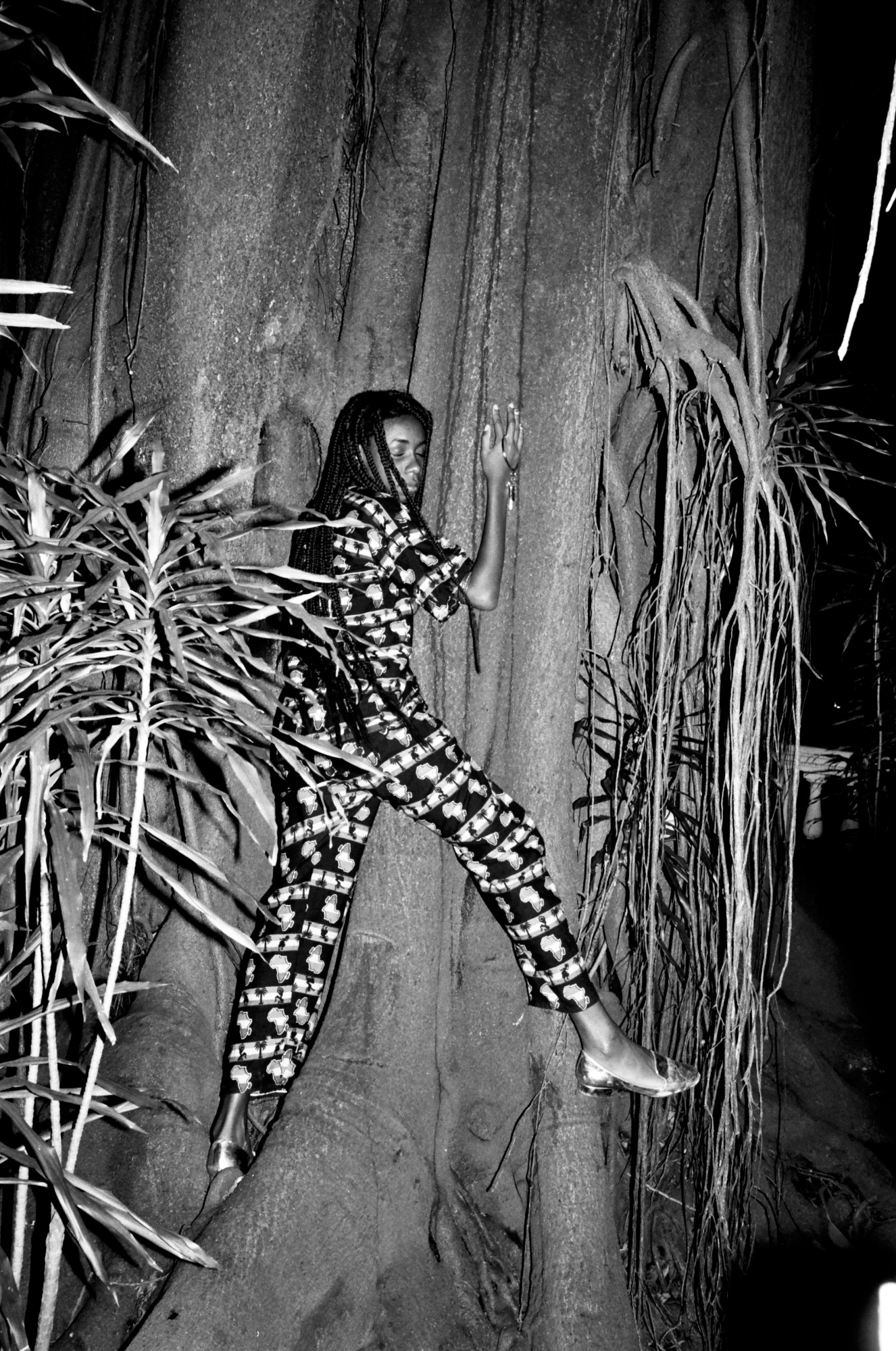
Igi Ayedun, 28 years old, image and content designer, multimedia artist and painter
Tell us what you love about the creative community you’re part of.
Our extensive capacity for creation, even in the face of oppression.
How would you describe the situation for black people in Brazil?
It’s all about image and money. We can not have a day of rest because they are always questioning the quality of what we do, who we are are, and what we want. Racism in Brazil is structural, and black people are always seen as something less.
What do you want to change?
The Brazilian image of what is right or wrong, beautiful or ugly, rich or poor, black or white, binary or not binary. It’s all about money.
What do you wish people in the USA knew about Brazil?
It is definitely important to know that we are living one of the most memorable movements in our history, despite the chaos. What is happening here is very close to the countercultural artistic movements that were generated by the oppressive lineages of the 20th century. However, unlike Brazilian Modernism and Tropicalism, the hot news about Brazil is not in the academies, but in the streets. The Brazilian vanguard is a queer-ghetto-sun-dissident human being.
If you could say one thing to the world, what would it be?
“If I have to choose a dichotomy between love and hate, I choose love” — Matheusa Passarelli.
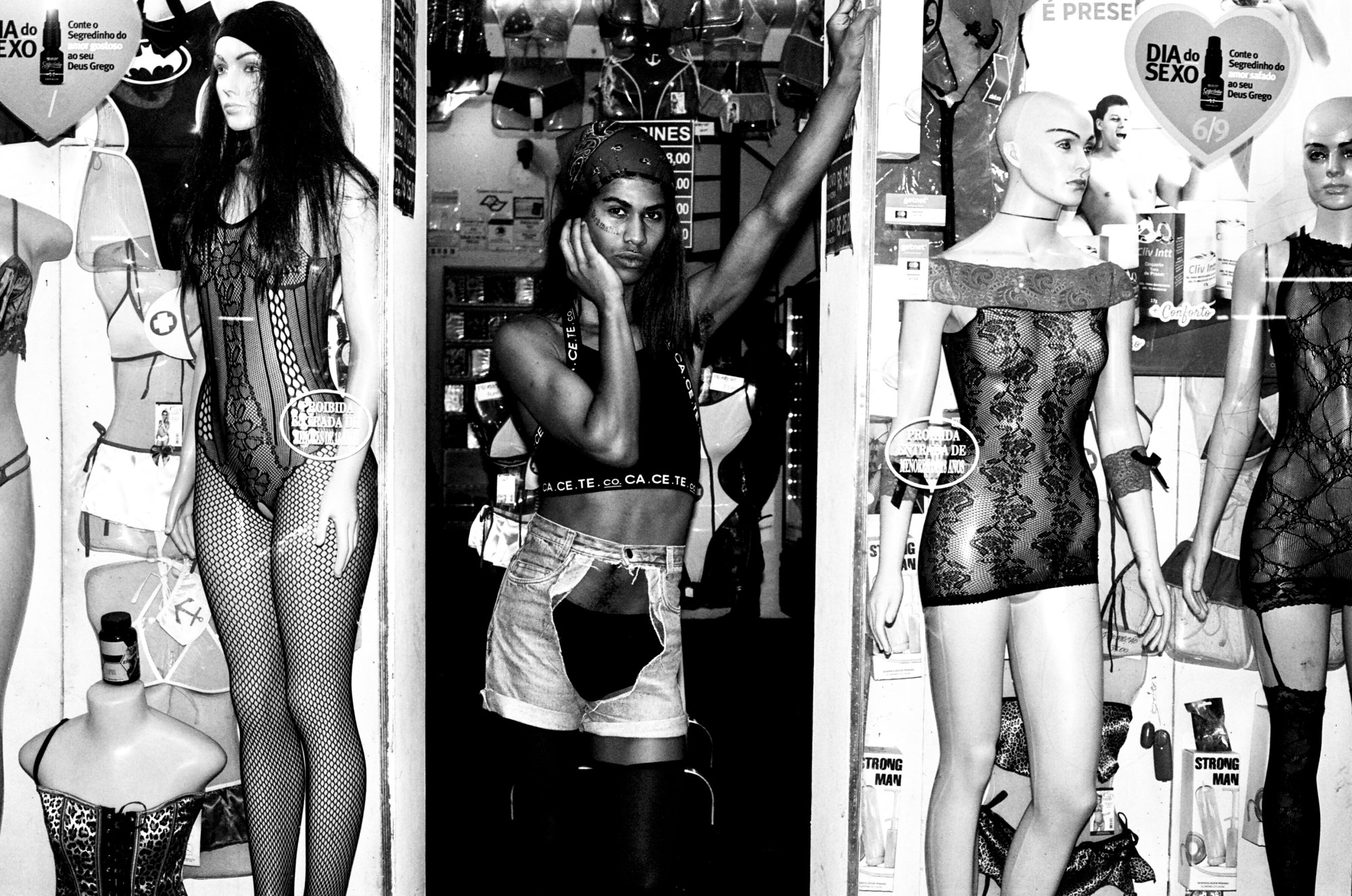
Slim Soledad, 20yo, model, DJ, performer, dancer, and producer of Mil Grau and Chernobyl parties.
How would you describe the situation for LGBTQ and black people in Brazil?
I would describe it as delicate. I think we are having a lot of progress, but at the same time a setback, with the new politics being introduced after the coup in Brazil. Our community lives on the borders of the country, we live in great social inequality. But I believe we are pushing a lot of boundaries as well. As black people who own spaces, star in movies, and with the system of quotas in universities, among other things.
What is your experience of being LGBTQ and black in Brazil?
I think the word would be ‘insecurity,’ because our country is very LGBTQ-phobic and racist. Our minority groups go through daily harassment, both physical and verbal aggression. But of course we are wonderful and we cause ‘fear’ in these people for not following the norm. Of course, I feel wonderful, because after all I love my skin. But the inequalities here since my childhood have been shoved in my face, I believe many white people do not believe they are racist, but they do not know that they are reproducing a type of oppression against our bodies.
If you could say one thing to the world, what would it be?
Seek out, get informed, research, and study. Because no one will be able to take your knowledge FROM you. The more knowledge you have, the more things connect.
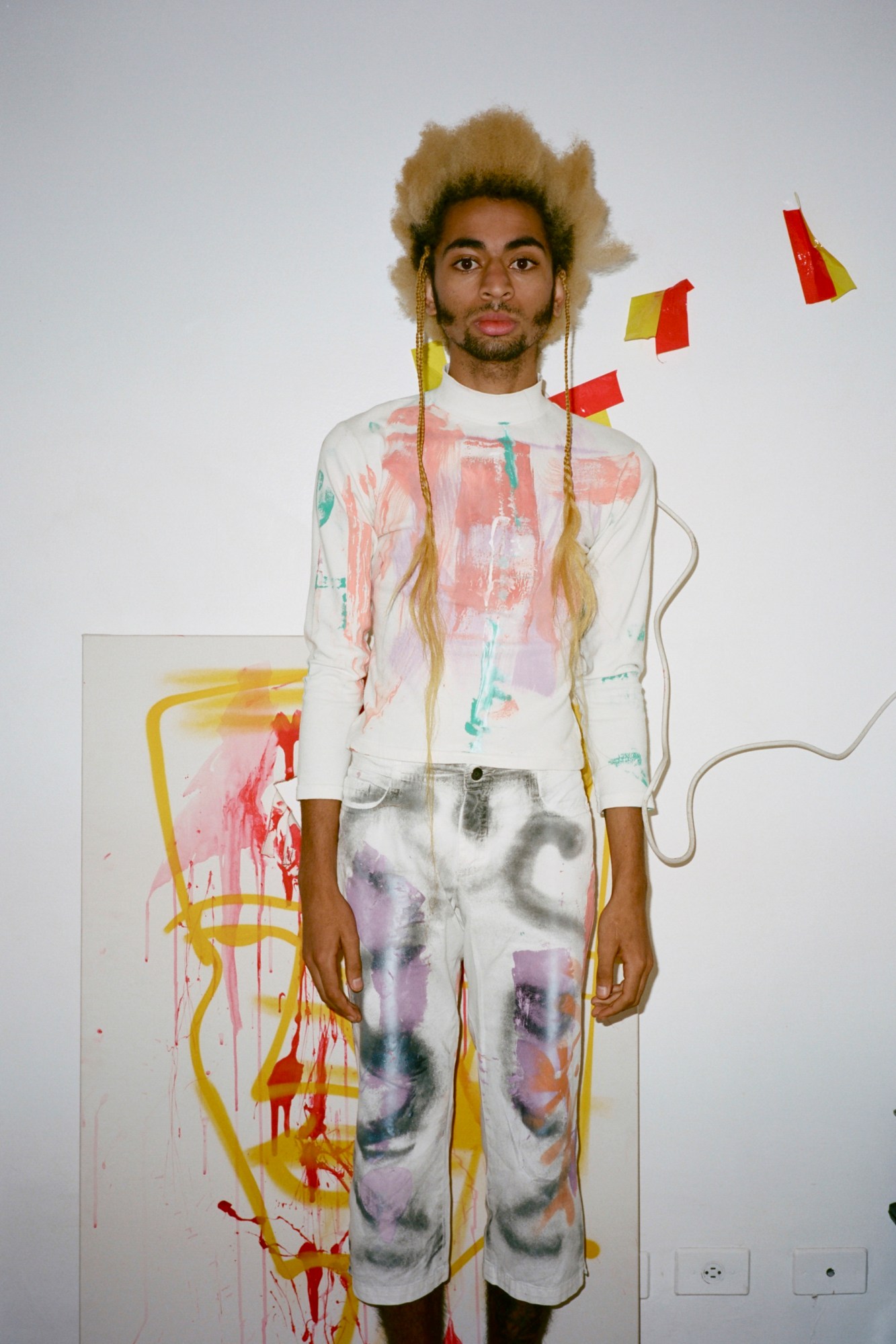
Kelton Campos, 21, visual artist @1nn6
Tell us what you love about the creative community you’re part of.
I love the constant exchange. As much as I feel we are inside bubbles, these bubbles have millions of particles, and these particles teach me. It is very beautiful how much we protect and love each other.
Please describe your work.
I live in Brasilandia [a district of Sao Paolo] and my research is totally linked to the favela where I grew up. I always try to bring people from my neighborhood to work with, to have the minimal visibility that I believe they [should] have. The ghetto is beautiful, I want to be able to work with it without brewing the stereotypes that people and institutions end up attaching to this place.
What is your experience of being black in Brazil?
Confused. I try to read a lot to understand my whole process as a black man in Brazil. I am the fruit of a diaspora. Sometimes I feel that our references for our fight are very linked to the US. I respect [the African American struggle], but I really miss a discussion of what it’s like to be black in Latin America.
What’s the best thing about Brazil?
What I love the most is that within all this madness that being Brazilian [brings], our lack of structure allows us to decolonize many things as much as possible.
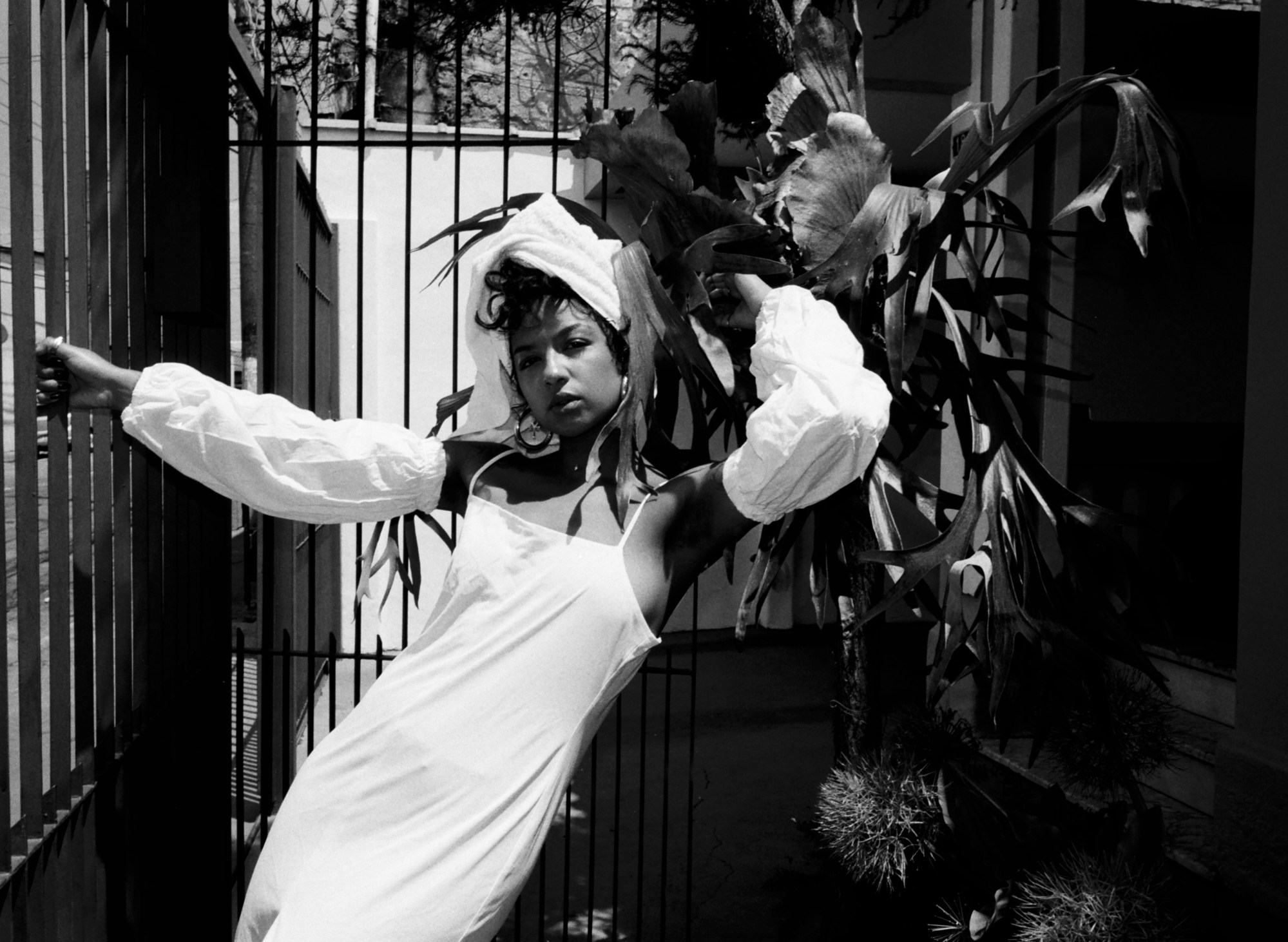
Lay, 26 years old, musician and feminist rapper
How would you describe the situation for LGBTQ people in Brazil?
Genocide. There is no agenda more important than this one here in this country because we are still talking about the right to life. The laws here are those of patriarchy and this has to change. This is the goal of the fight.
How would you describe the situation for black people in Brazil?
It’s unfortunate how we grew up without black references, and are structured to deny our own existence, which is dictated by white people. Here in Brazil, it is very common for us to see that they appropriate our art, our aesthetics, to present us bleached versions of it. The avant-garde black community is seeking its space through art. But still, we’re facing a lot of difficulties arising from the racist structure that culminates in financial, psychological, and emotional problems.
What’s the best thing about your community in Brazil?
The ability to survive. This is the most admirable thing for the moment. After the impeachment of the only woman elected president of the country, the murder of Congresswoman Marielle Franco, and so many other barbarisms against our people, it is difficult to believe that we were able to wake up and play the next day.
What do you want to change?
The patriarchal, capitalist, and racist structure.

Ricardo Boni, 21 years old, fashion designer and co-founder of Estileras.
How would you describe the situation for LGBTQ people in Brazil?
Thinking about the whole of Brazil, we are in danger. They kill and humiliate us, propagating the worst discourse on our bodies, which is marked by violence. Although the market is changing, they never hire us, they do not value our work. Even with colorful posters and ‘love’ buttons, we are still second-class people, even within spaces that set out to be LGBTQA+ friendly, sponsored by major brands.
What is your experience of being LGBTQ in Brazil?
I have a privileged experience because my family never oppressed me or forced me to be something that I was not. From this context, I grew up trying to understand human diversity and its powers, trying to be respectful of everyone.
From the end of my middle school, I began to dress in a non-normative way and, even today, I feel the weight of the looks, the laughter, and the fear of walking the streets without knowing what will happen. You are exotic, and have to explain your dress and behavior, every breath you take. That is being LGBTQA + in Brazil.
What do you want to change?
There must be more intersection in the discussions. It is necessary to talk about race along with sexuality, along with gender, with social context, etc. We need more opportunity for the minorities. More political and social awareness. And greater connectivity with the other regions of the country to form a potent exchange of dissident art.
If you could say one thing to the world, what would it be?
Between the ‘yes’ and the ‘no,’ I choose the ‘maybe.’
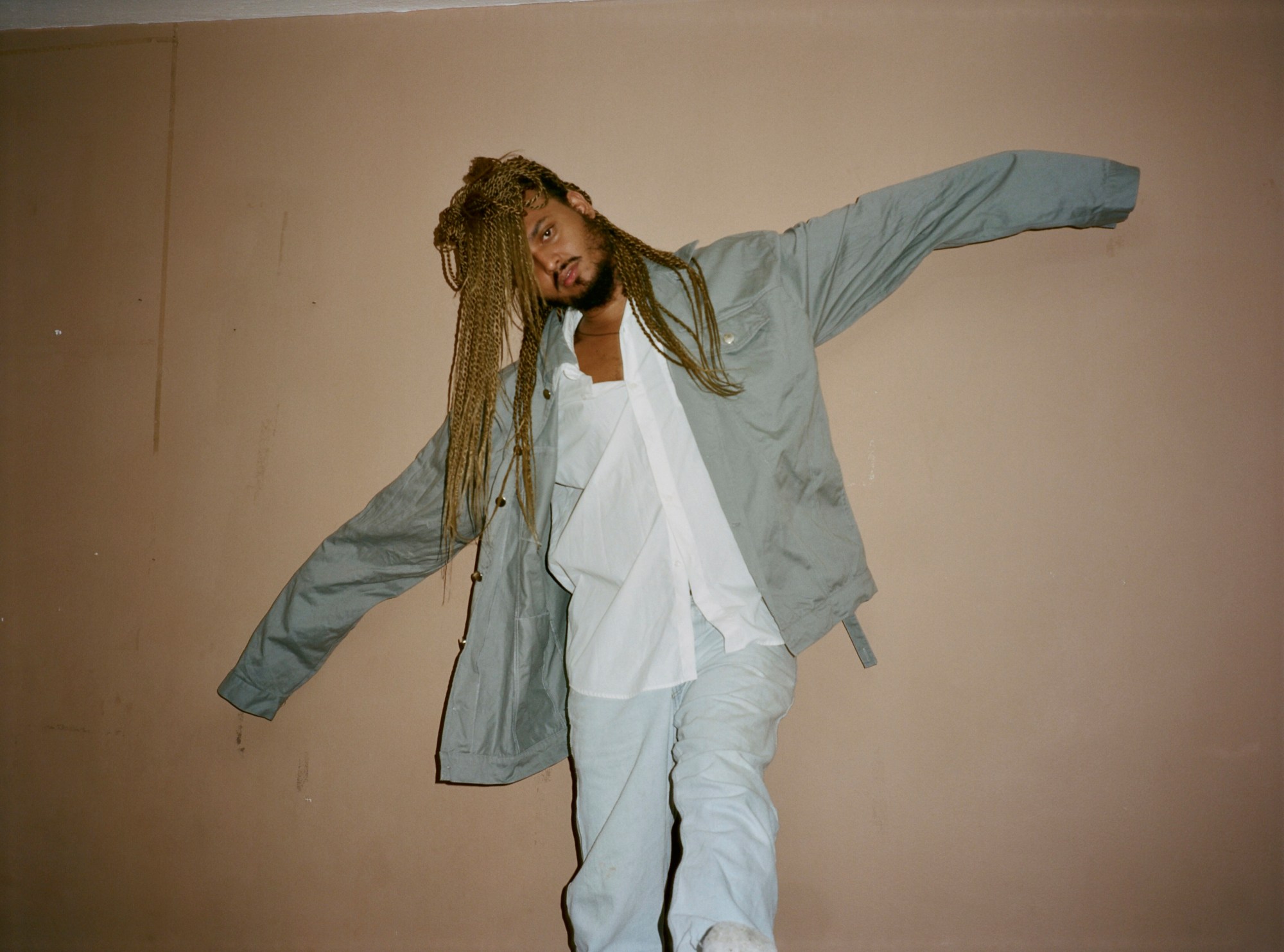
Eduardo Costa Reis, 29 years old, co-founder of Brechó Replay
Please describe your work.
Brecho Replay is a creative platform on Instagram where we print our personal research work, and share our creative process, and not just what comes out of it.
What is your experience of being LGBTQ and black in Brazil?
Oppressed and an object of study.
What’s the best thing about your community in Brazil?
That this community can be called a family, different from the national Christian format.
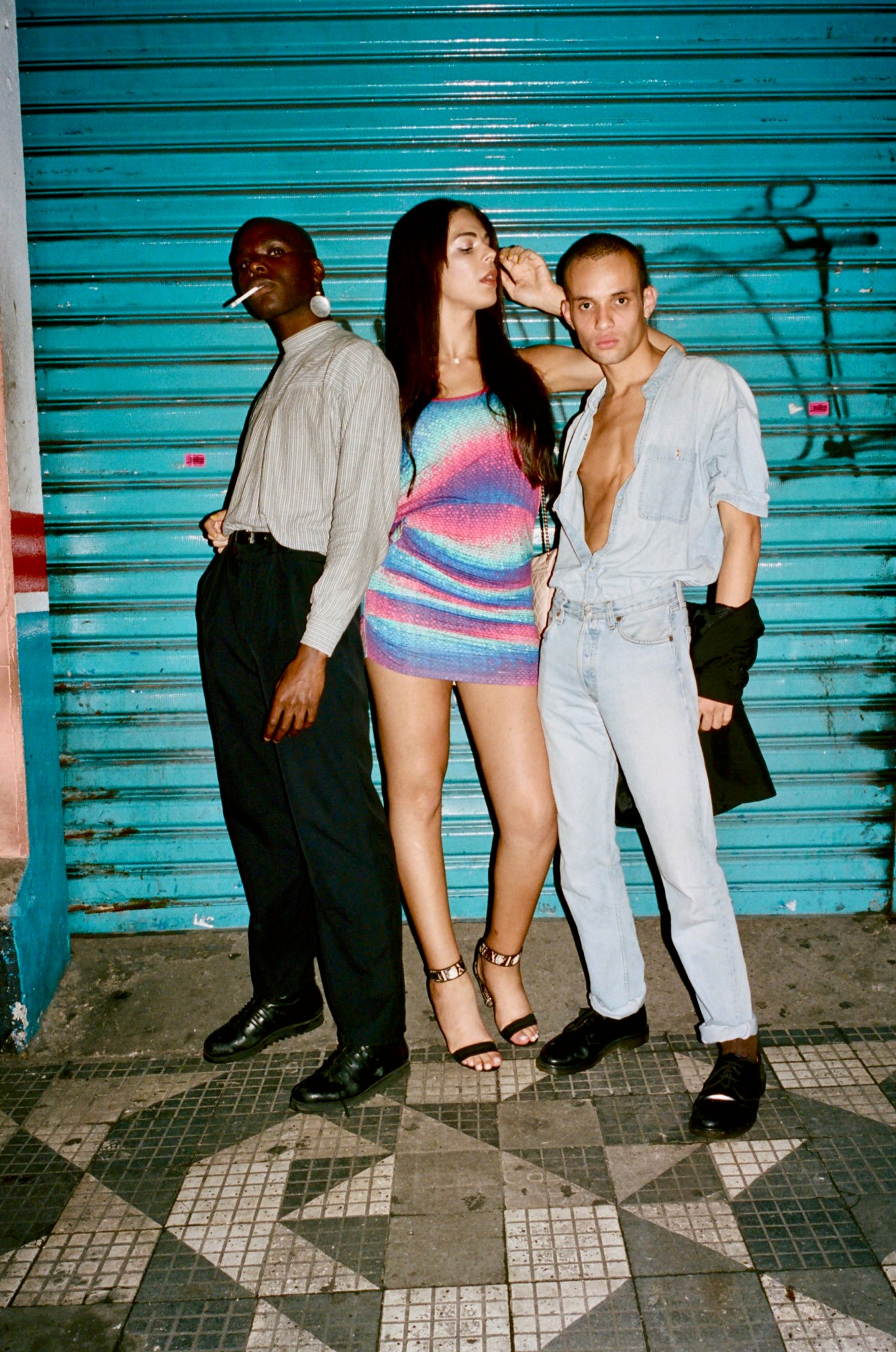
Loïc Koutana, 23 years old, French/ Congolese/Ivorian model and contemporary dance performer.
How would you describe the situation for LGBTQ and black people in Brazil?
There’s something that was really impactful for me when I arrived in Brazil — Brazil is the place in the world that has the most transgender people, but also the place that kills the most transgender people. This show the paradox that we have in the country. Although people fight to be themselves, to embrace their uniqueness, the LGBTQ scene and black community is constantly oppressed and shut down.
We lost a dear friend few months ago — a young, amazing, and special transgender artist called Matheusa. It kills you when you realize that these are not just statistics but real acts.
What is your experience of being LGBTQ and black in Brazil?
My experience is really positive. I always say that I reborn in Brazil. In France I was constantly worrying about what people would say and think about me. The country, the desire for liberty, and the confidence of people in Brazil helped me to accept myself. My journey is really surprising here.
What’s the best thing about your community in Brazil?
As a French/African individual I really feel like Brazil is the perfect mix between the French lifestyle and this desire of liberty and justice that the French have. On the other hand I can recognize here the African spirit, the sense of family and joy for life. The best thing about Brazil is for sure that it’s melting pot.
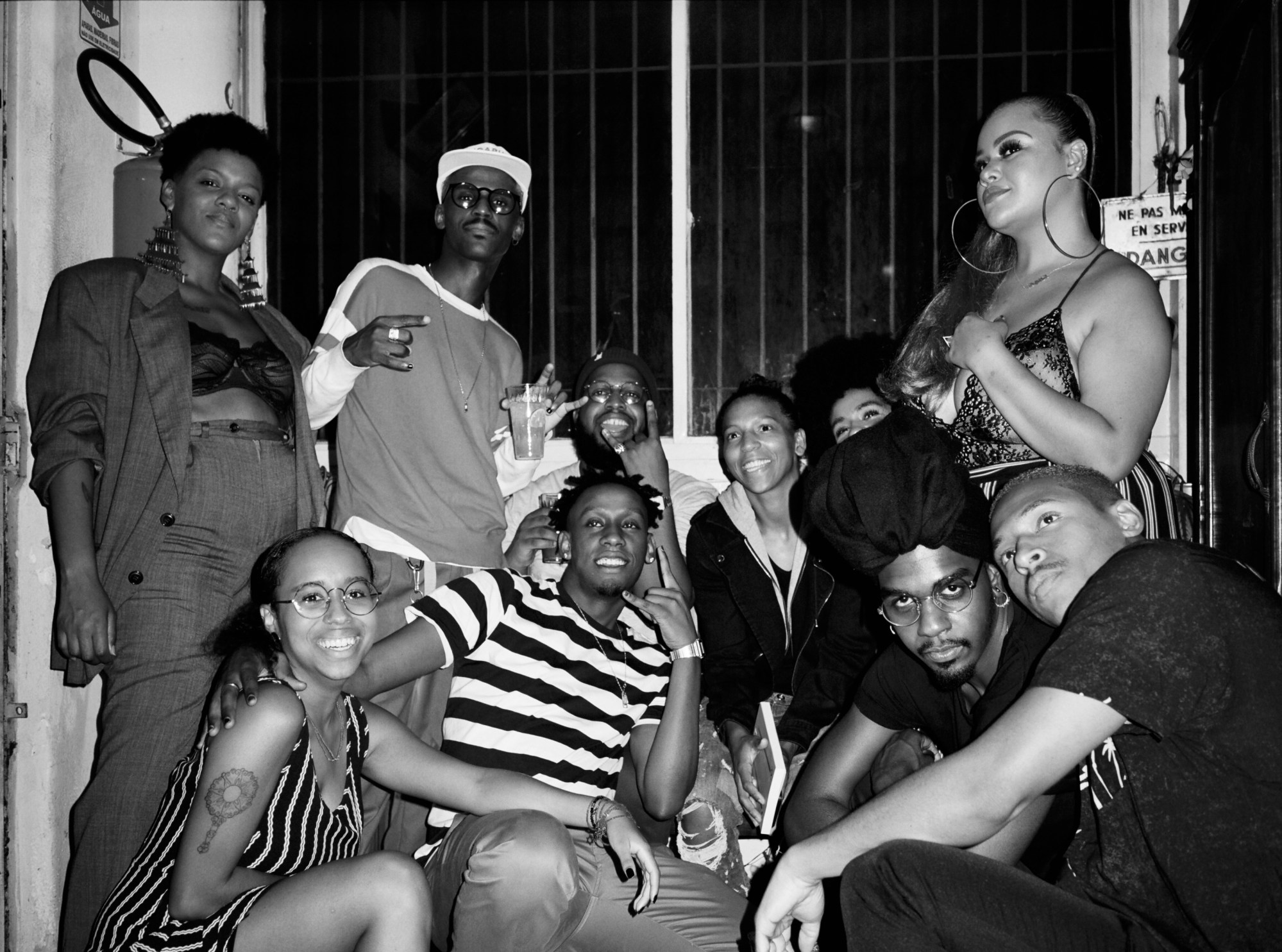
MOOC Collective — Catarina Martins, Kevin David, Levis Novaes, Lídia Thays, Louis Rodrigues, Raphael Fidelis, Vinni Tex, and Suyane Ynaya
Tell us what you love about the creative community you’re part of.
The new sense of community that is spreading among black creatives.
Please describe your work.
We usually say that we are advertising professionals, but within the collective there are several different jobs, from creation to the final product. The intention is always to show that our perspectives are as valid as any formed in major colleges. The MOOC plants the seed where the earth was perhaps not fertile. We believe that nothing can be as before.
How would you describe the situation for black people in Brazil?
In constant evolution would be the perfect answer, but it is very difficult to speak for all. Today, our creative, young, adult, and black niche here in Brazil is developing, seeking references within our contexts, and stopping trying to be the USA, beginning to explore what we have culturally and artistically. I think this path is getting more defined for us, and that’s where we’re going.
What is your experience of being black in Brazil?
Talking about black bodies within our society is a rather complex task. Each person has unique characteristics and experiences, but when we bring into the context of being “black” it is as if we were connected in unity. True knowledge about the black community in general is the most important step. Today, with much easier access, there’s information on the subject, and the community has been talking more openly about it — in relation to our parents’ generation, for example. But we have not yet included it in the education of our children.
What do you wish people in the USA knew about Brazil?
You should know that Brazil is much more than Rio de Janeiro, Carnival, and Pretty Woman and that there are other types of cultures besides samba, funk, and soccer. A good solution to this is to research other types of local culture and come here to have this type of experience. Spending a season living with different groups of people with diverse social backgrounds is a way to have a truer exchange among cultures.
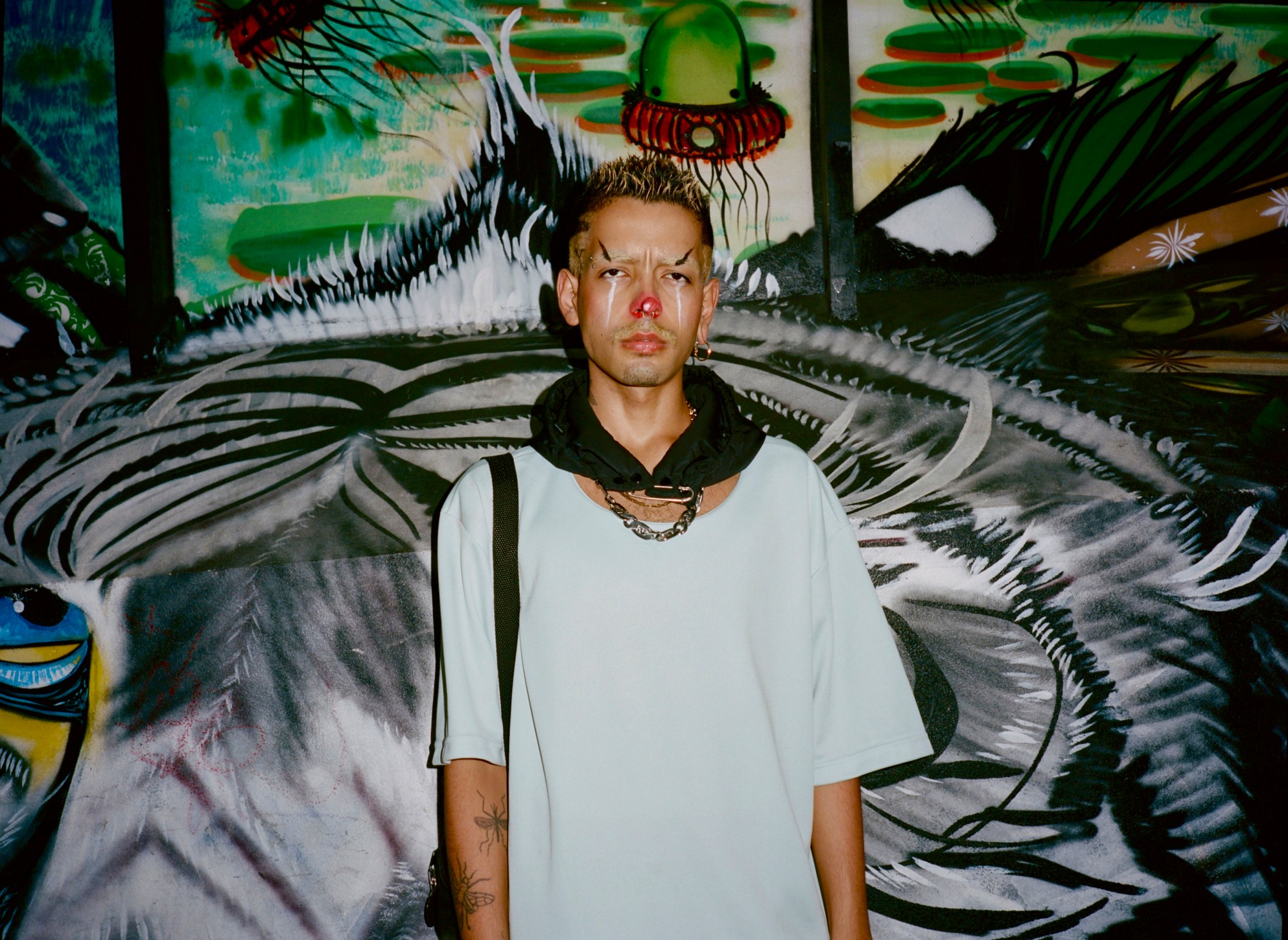
Isaac Lohan, 22 years old, cook and visual protestor
How would you describe the situation for LGBTQ people in Brazil?
We are afraid of everything that is happening, and is coming. But we are prepared to face it. I see the community uniting and trying to understand each other more and more. We spread and multiply throughout Brazil, every corner has someone fighting for all of us, and that is beautiful.
What is your experience of being LGBTQ in Brazil?
I feel free and entitled to be unique. I feel like a survivor every day, someone who can not be afraid.
What’s the best thing about your community in Brazil?
The unity! I feel good and safe when I’m with my peers, and the community gets bigger and bigger, it’s what makes us win.
What do you wish people in the USA knew about Brazil?
That we do not speak Spanish, that politically we are experiencing similar moments, and we have many things to learn from each other.
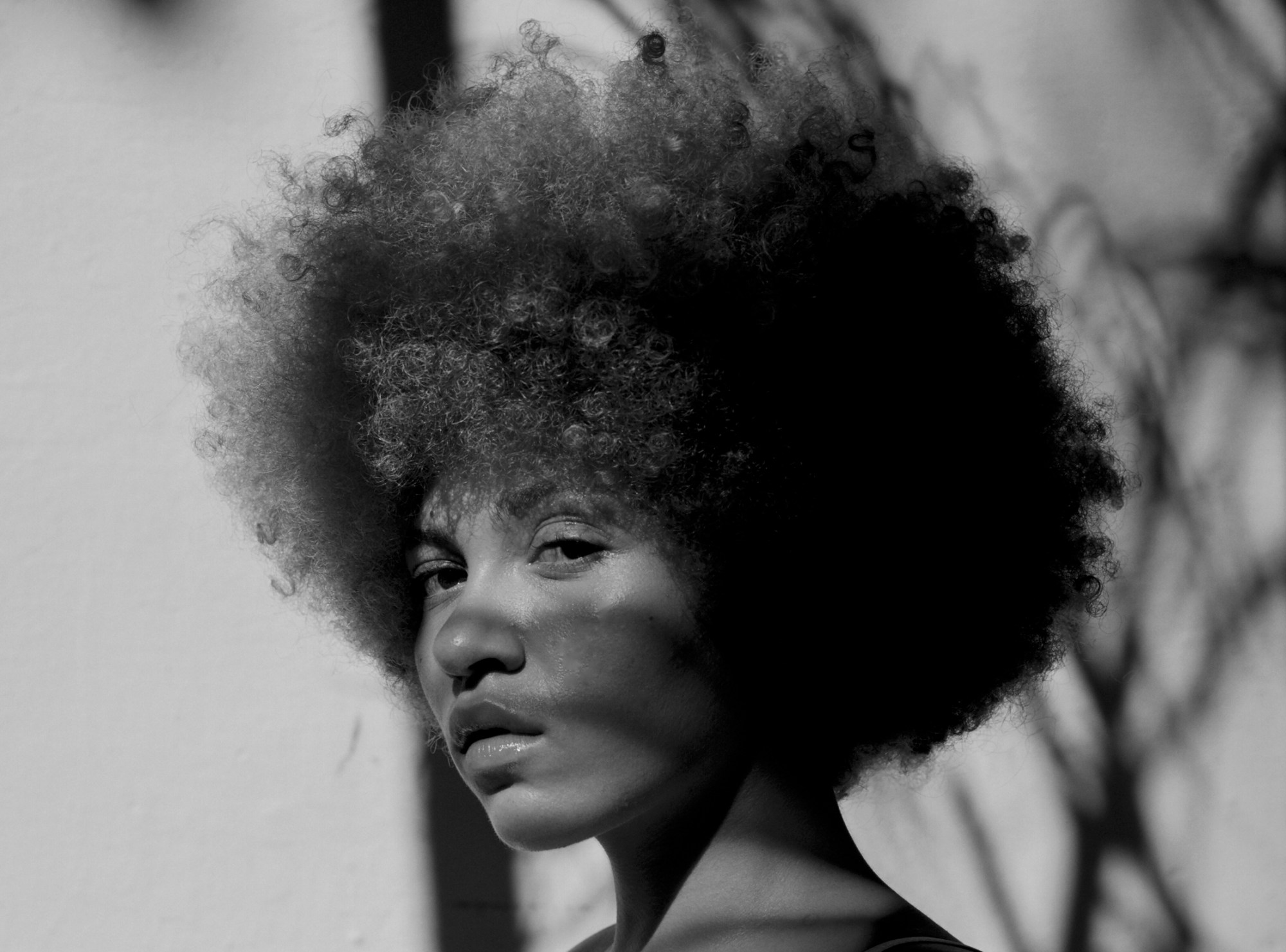
Luiza De Alexandre, 20 years old, visual artist and singer
What is your experience of being LGBT! and black in Brazil?
As a bisexual cis woman, I feel stifling glances when I’m with my partner. My circle of friends is totally formed by trans and non-binary people, and so on. As a light skinned black woman I find myself in a privileged place many times… I began to understand myself as a black woman in my third year of middle school, when the school principal told me that I should comb my hair to attend a job interview.
What do you wish people in the USA knew about Brazil?
We live in a great economic and political crisis and that this is extremely desperate for creative youth. In Brazil we live in a time which we can’t engage with politics, the people are powerless, and totally uninformed. They don’t give us information and we don’t know what is really happening.
If you could say one thing to the world, what would it be?
We need to think of the near future, not let consumerism take care of us. It sounds crazy hippie talk, but isn’t! We’ve really come to this point when we need to reflect our values, to start really thinking about minorities. We need to be less selfish at once, and this is something we can practice every day.
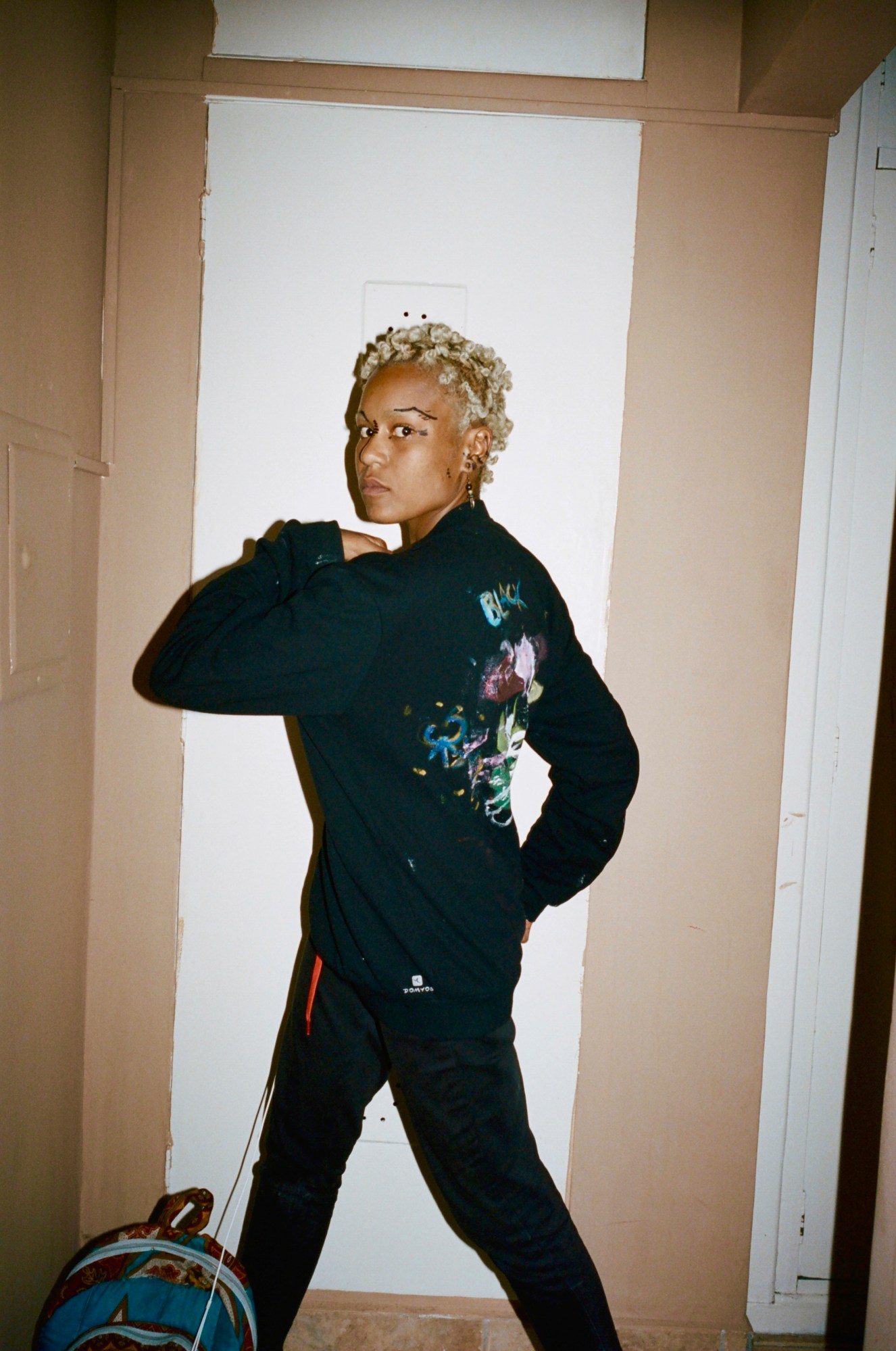
Yaminah Garcia, 21 years old, sound artist.
Please describe your work.
I am a sound engineer and, and I am a DJ. I make soundtracks for fashion and advertising videos and sometimes work as a model for independent brands. I also participate in a collective that puts black artists into places that do not qualify black art as art, called AEAN.
How would you describe the situation for LGBTQ people in Brazil?
Brazil is huge, and I can’t generalize because every neighborhood has dozens of ethnicities. Each experience is different from one to another.
But, in general, people are dying because the fury that comes from immense ignorance. This year we lost Matheusa because of the discrimination we suffered. She was brutally killed in a community in Rio de Janeiro, and I also suffered a street attack because a friend was wearing a dress, and we fought to protect him. Everything is very unstable, you are in a street with your friends and suddenly you can go through a situation of total aggression and hatred because of the discrimination.
What is your experience of being LGBTQ and black in Brazil?
I know that I am not a hundred percent accepted in most environments, but very happy to be part of a community so understanding of differences. I’m proud to be descended from honest people, kings and queens, and not from psychopathic settlers.
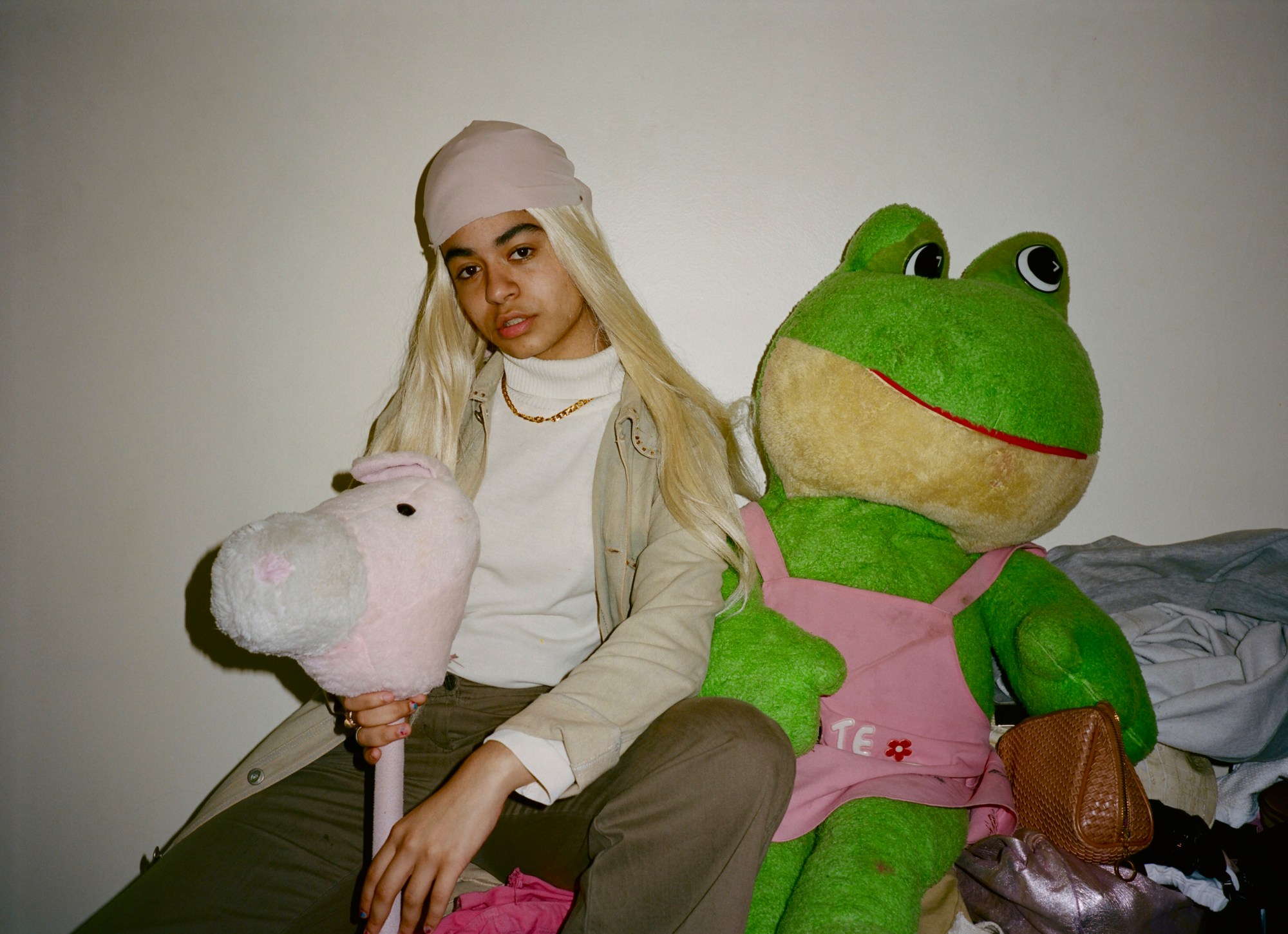
Victória Carolina, 19 years old, stylist and visual artist
How would you describe the situation for LGBTQ and black people in Brazil?
Although more than 50% of the Brazilian population is black, because of the colonization process, what has always been sold as ideal were white bodies. Advertising emphasized these standards, reinforcing exclusion and racism within the system.
With the help of social networks, which enabled greater access to information, people began to recognize themselves as black. In Brazil racism is structural, and we are in the process of discovery and empowerment, to change things for future generations.
What is your experience of being LGBTQ and black in Brazil?
Oppressed. Since I am not part of the patriarchal stereotype of the system, my body is excluded and consequently, I will not be heard.
What’s the best thing about your community?
I don’t know if it’s the best thing, far from it! I live in a social bubble that allows me to talk about these issues within the community, to listen, to be able to speak and to question myself. But outside this bubble I live the danger, oppression, and repression of the rest of Brazilian society.
